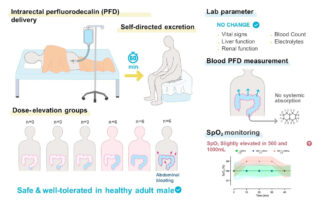The Erosion of Trust in Medical Research: A Crisis Decades in the Making
“Follow the Science” used to be shorthand for trustworthy information, but not so much anymore. The scientific community needs to take steps to restore that trust

For decades, the phrase “follow the science” conveyed a sense of unwavering trust. It implied confidence in a system dedicated to advancing human health through rigorous inquiry. However, recent events have revealed significant fractures in this trust, exposing systemic issues that threaten both public confidence and the very progress of scientific discovery.
The scandal surrounding Alzheimer’s research serves as a stark example. As reported in The Chronicle of Higher Education, a substantial portion of foundational research over the past two decades was based on manipulated or fraudulent data. This deception led to the misallocation of tens of millions of research dollars, wasted the efforts of numerous scientists, and, most critically, delayed the pursuit of effective treatments and a cure. The implications are profound: how many lives could have been improved, or even saved, had research not been misdirected by fraudulent findings?
This crisis of trust extends beyond Alzheimer’s research. The decline in public confidence in medical institutions and scientific integrity is widespread. During his recent Senate confirmation hearing for FDA commissioner, Dr. Marty Makary of Johns Hopkins University highlighted this alarming trend:
“Trust in doctors and hospitals is currently in a critical state. It was 71% in 2019… now it’s down to 40%. That’s a 31-point drop in my profession. This is a significant problem. If we develop a cure for pancreatic cancer but only 40% of the public is willing to accept it due to distrust, the medication’s effectiveness is essentially reduced to 40%.”
Dr. Makary’s statement underscores the real-world consequences of a public that questions the integrity of medical research. If individuals decline treatment or doubt the validity of scientific findings, even groundbreaking discoveries lose their potential impact.
A central factor in this crisis is the influence of financial incentives in research. Whether it’s the pursuit of lucrative grants, the pressure to publish impactful findings, or the financial interests of pharmaceutical companies, the incentives for scientists are not always aligned with the pursuit of objective truth. This misalignment has contributed to instances of manipulated studies, suppressed data, and an overall erosion of faith in the scientific establishment.
It is essential to distinguish between scientific truth and public trust. Science is an iterative process, and current understandings may evolve as new evidence emerges. This is inherent to scientific progress. However, public trust should remain steadfast. The expectation is not that scientists will always be correct, but that they will be transparent and honest in their pursuit of knowledge. When financial incentives, personal ambitions, or institutional pressures supersede the unbiased search for truth, trust inevitably deteriorates.
This decline in trust does not imply that science is irreparable, nor does it suggest that all research is flawed. It does, however, indicate a deep-seated problem that requires attention. Fortunately, awareness of these shortcomings is growing within the scientific community, and efforts to address them are underway.
In the second part of this series, I will explore potential solutions to rebuild trust in medical research—how transparency, accountability, and systemic reforms can restore confidence in a field that, at its best, has the power to transform lives. For now, the reality remains: trust in medical research has been compromised, and without decisive action, the consequences will be felt for generations.
Share This →
2 Comments
Leave A Comment
You must be logged in to post a comment.







[…] my previous post I wrote about how the loss of trust in research and medicine is damaging the scientific world and […]
[…] means, there’s little doubt that confidence has fallen quite a bit (a point I made in an earlier article). What’s more important, however, is that this isn’t a single point of failure, but a […]